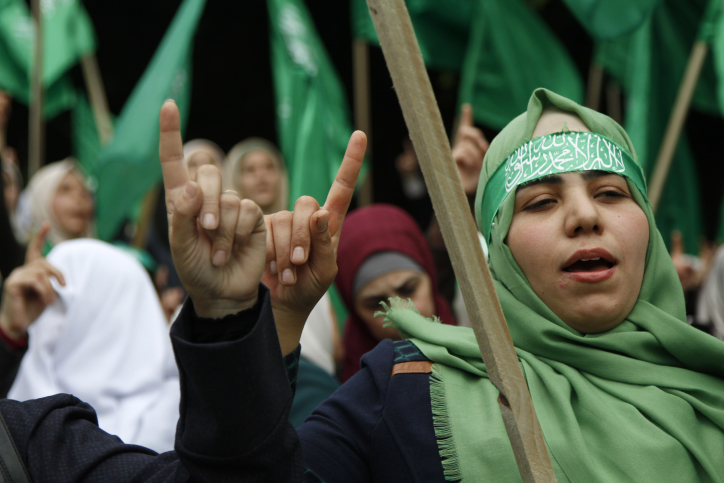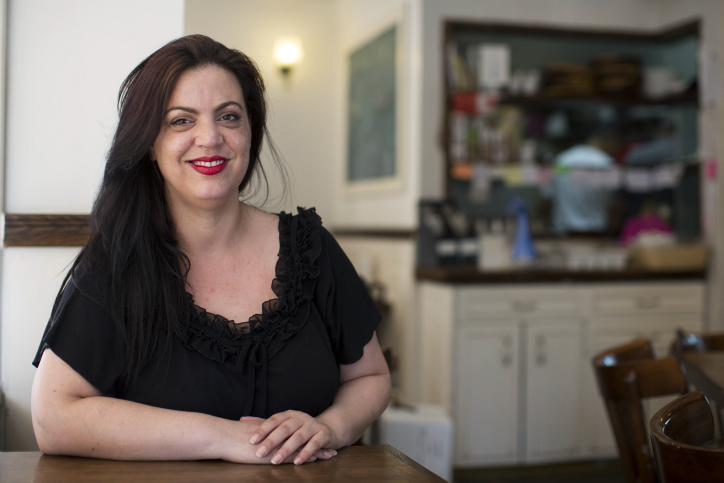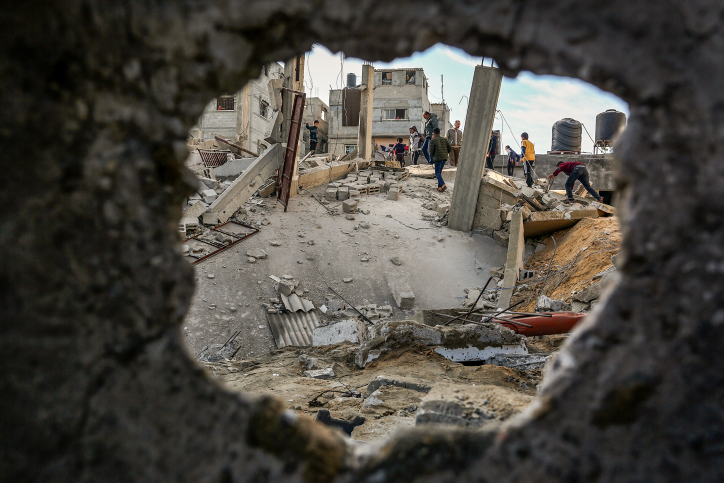As the latest round of fighting in Gaza and southern Israel died down, it became clear that keeping Hamas in power has become a central tenet of the Israeli right.
By Meron Rapoport

The idea that Hamas is an Israeli creation is nearly as old as Hamas itself. Researchers, journalists, high-ranking Israeli military and government officials — even Americans — have found substantial evidence to that effect. And yet the Israeli narrative presents Hamas as a zealous, murderous terrorist group — the sworn enemy of every Israeli and Jew around the world.
Official Israel has never admitted to supporting Hamas and every Israeli who dares talk about the need to speak with Hamas is immediately portrayed as a traitor. This is the same treatment IDF and Shin Bet officials received during and after the last war on Gaza, when they repeated the mantra that Israel must reach an agreement with Hamas. The same goes for the brief “Eurovision War” last week. Naftali Bennett, along with many on the right, have built a career on taking on the security establishment, which they view as weak and cowardly.
That’s why the cadre of right-wingers who joined hands last week to praise Netanyahu’s decision “to keep Hamas on its feet,” as journalist Galit Distal Atbaryan put it, is no less than amazing. The fact that this group runs the gamut from Netanyahu confidants — including Distal Atbaryan herself — to the prime minister’s critics, including far-right MK Betzalel Smotrich, is a sign that keeping Hamas in power has become a central policy of the entire Israeli right.
In the eyes of the right today, every Israeli patriot must wholeheartedly support the Hamas regime in Gaza. Leftist traitors, they say, support the possibility that Palestinian President Mahmoud Abbas, who rules over the West Bank, take control of the Gaza Strip, bringing Israel closer to the “pit of the two-state solution,” as right-wing pundit and former IDF Major-General Gershon Hacohen put it.
The policy of “separating” the West Bank from Gaza isn’t new. It began in the late 1980s, with various prime ministers — from Yitzhak Rabin to Netanyahu — finding ways to make it more sophisticated it over the years. Now comes the reasoning behind the separation. No longer are we dealing solely with the question of ostensible security benefits that result in severing Gaza from the West Bank. Today, Hamas’ rule has added value, and maintaining its regime justifies Israeli civilian casualties (Palestinian lives, of course, don’t matter). In order to keep Hamas on its feet, writes Distal Abtaryan, Netanyahu is willing to pay “an almost inconceivable price — half the country paralyzed, children and parents in post-trauma, bombed houses, people killed.”
Why is Netanyahu willing to pay this price? The answer is simple: “Every home needs a balcony, and Israel is a home,” writes Distal Abtaryan, “the balcony of this home is Samaria… if Hamas crumbles, Mahmoud Abbas may rule the strip. If he rules it, voices on the left will encourage negotiations, a political settlement, and a Palestinian state in Judea and Samaria as well… this is the real reason Netanyahu doesn’t annihilate Hamas, everything else is bullshit.”

Erez Tadmor, one of the founders of the far-right Im Tirzu movement and who headed Likud’s information campaign in the last elections, struck a similar tone on Twitter. “The split between Abbas’ Judea and Samaria and Hamas’ Gaza is optimal for Israel,” he tweeted after the ceasefire was announced. “When necessary, we can strike Hamas in Gaza and not be forced to withdraw to the Auschwitz borders in Judea and Samaria,” Tadmore wrote.
Yonatana Orich, who managed Likud’s campaign alongside Tadmor and is one of Netanyahu’s closest advisors, made similar remarks. “He (Netanyahu – M.R.) succeeded in disconnecting between Gaza and Judea and Samaria, and effectively shattered the vision of a Palestinian state in these two areas. Part of the achievement is linked to the Qatari money that comes to Hamas every month,” he explained in an interview to Makor Rishon before the latest round of fighting erupted.
Netanyahu’s supporters on the right aren’t alone. Although MK Betzalel Smotrich, who may soon become a minister, expressed disappointment over the fact that Israel did not kill 700 Palestinians — in retaliation for every rocket fired from Gaza — back in 2015 he called Hamas an “asset” and Abbas a “burden.”
In an interview with right-wing news website Mida, Gershon Hacohen, known for his criticism of Netanyahu from the right, explained that by refraining from taking down Hamas, Netanyahu “prevented Abbas’ plot to establish a united Palestinian state. We need to take advantage of the situation of separation between Gaza and Ramallah. This is a top Israeli interest, and it is impossible to understand the campaign in Gaza without understanding this context.”

As opposed to Netanyahu’s admirers, Hacohen is aware that support for Hamas is a trap for Israel. “Hamas created, with the threat of rockets, a difficult equation that cannot be denied,” he admitted. “Each day of rockets paralyzing the country carries heavy financial costs. That is why Hamas can cause us to prefer considerations of containment, because the price we pay is high.” Hacohen supports a severe response to Hamas but worries that such a response would be too successful. “To avoid a situation in which we have defeated Hamas but have fallen into the pit of a two-state solution,” he said, “we must, first of all, regulate control over Area C and stop the attempts of the PA to take over other areas under the auspices of the European Union.” First we annex, then we topple Hamas.
In the eyes of the Israeli right, the real threat to Israel is not Hamas’ violence and terrorism — the danger is a peace agreement with the PLO, Abbas, and the establishment of a Palestinian state. In the struggle against this danger, Hamas is viewed as an almost ideological partner. It, too, opposes Abbas, and has no interest in the PA ruling Gaza. That is why whatever strengthens Hamas is good for Israel, and whatever weakens it is bad for Israel. An Israel that wants to continue its occupation of the West Bank will want to continue to stand on the balcony and gaze at the Palestinians from above.
Meron Rapoport is an editor at Local Call, where this article first appeared in Hebrew. Read it here.
